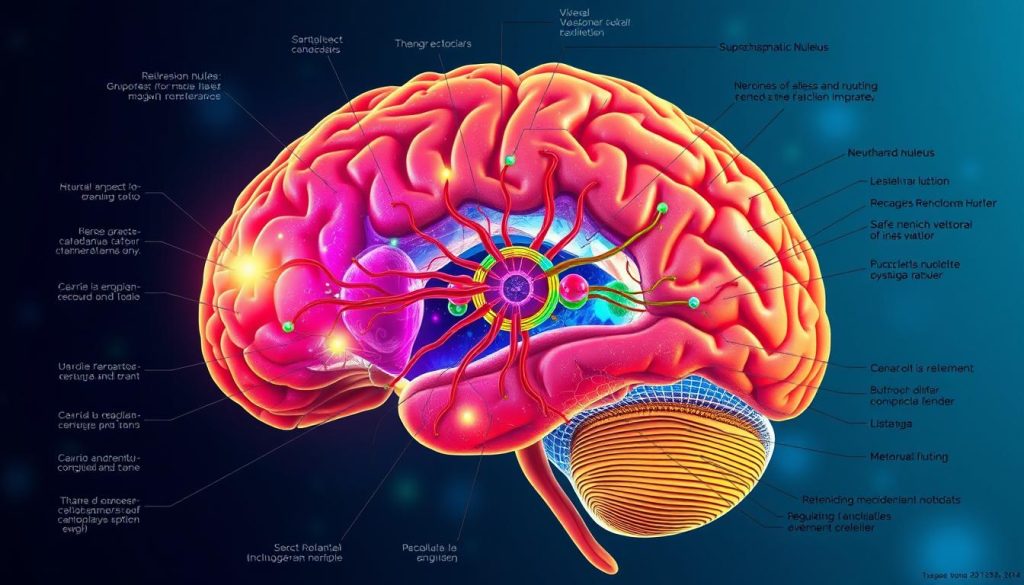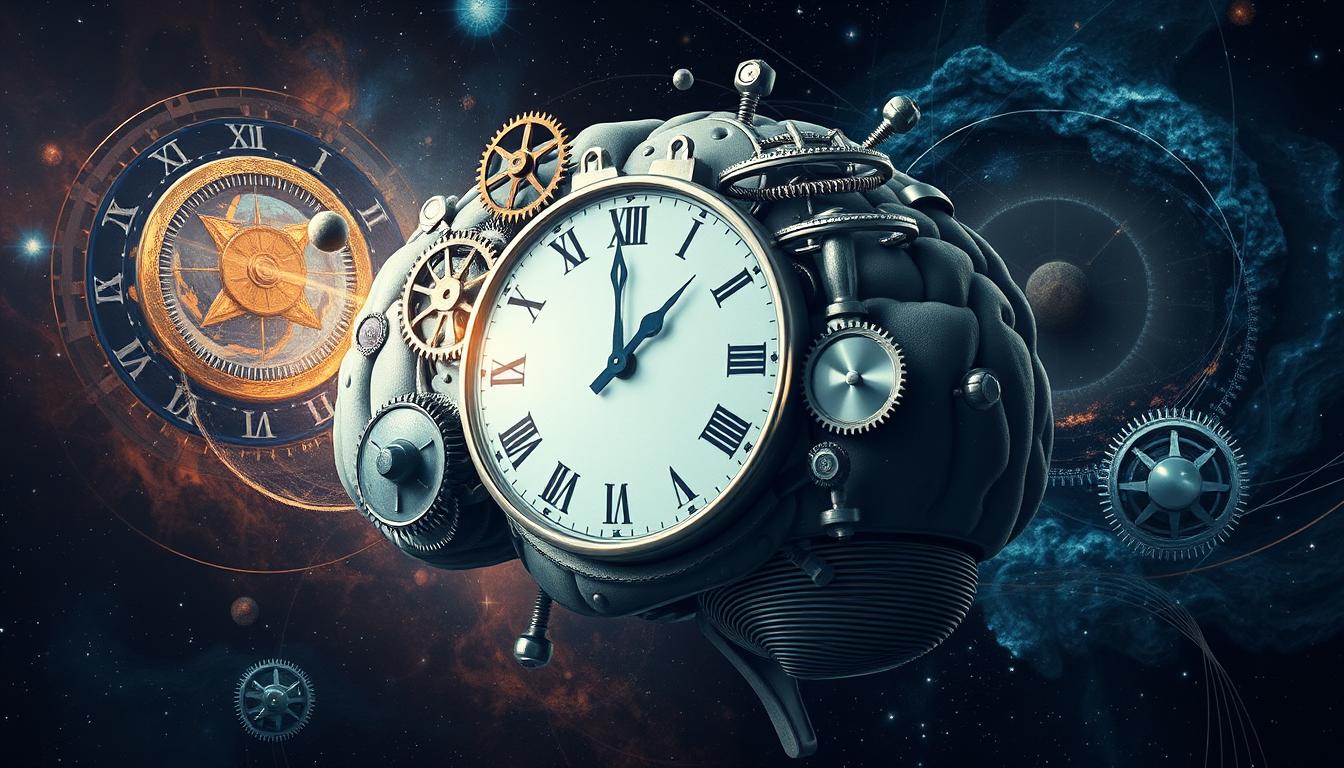Our brain’s internal clock, also known as the circadian rhythm, is amazing. It controls our daily sleep-wake cycles and how we see time. This hidden timekeeper helps our body match the day and night rhythms. By learning about our brain clock, we can understand how it affects our lives and health.
Our internal clock is complex and always changing. It makes sure our body’s rhythms and actions follow a 24-hour cycle. This cycle controls our sleep, hormone levels, body temperature, and more. It keeps our body in tune with the world, helping us live our best lives.
Unveiling the Mysteries of Our Biological Timekeeper
Deep in our brain, a special part called the circadian rhythm exists. It’s like a 24-hour clock inside us. This clock, led by the suprachiasmatic nucleus (SCN), helps control many body functions. It manages things like hormone release and body temperature.
The Circadian Rhythm: Nature’s Metronome
The circadian rhythm is a precise system. It connects our body’s inner workings with the outside world. By matching with sunlight and darkness, we keep a good sleep schedule. This helps us adjust to our surroundings.
Synchronizing with the External World
Our internal clock doesn’t just rely on the SCN. It also needs outside signals to stay in rhythm. Light, meal times, and social interactions help keep our clock in sync with day and night.
| Synchronization Factor | Impact on Circadian Rhythm |
|---|---|
| Sunlight | Triggers the release of hormones that regulate the sleep-wake cycle |
| Mealtimes | Influences metabolic processes and hormone production |
| Social Interactions | Provides cues that reinforce our daily routines and activities |
Learning about our biological clock and how it interacts with the world can improve our health. It’s all about understanding and working with our body’s natural rhythms.

Exploring the Suprachiasmatic Nucleus: The Brain’s Clock Control Center
Deep in our brain, the suprachiasmatic nucleus (SCN) is a key player. It controls our internal clock. This tiny area makes sure our body’s functions match the day-night cycle.
The SCN listens to light from our eyes. It uses this light to adjust our body’s rhythm. This helps control when we feel sleepy and awake.
The SCN does more than just help us sleep. It also manages our body temperature, how we use energy, and hormone releases. This keeps our body working well with the world around us.
The SCN doesn’t work alone. It teams up with other brain parts to keep our rhythm in sync. Together, they make sure our body’s clock stays in tune with the day.
Learning about the SCN helps us understand our daily rhythms better. This knowledge can improve our lifestyle and health. It shows how important it is to take care of our sleep and light exposure.
| Key Functions of the Suprachiasmatic Nucleus (SCN) |
|---|
|

The Intriguing Role of Melatonin in Regulating Our Brain Clock
Ever wondered why we get sleepy at sunset and wake up with the sun? It’s all thanks to melatonin. This hormone helps control our body’s internal clock, or circadian rhythm.
Melatonin: The Sleep-Wake Cycle’s Conductor
Melatonin is made by the pineal gland in our brain. It helps us sleep and wake up. When it gets dark, melatonin levels go up, telling our body it’s time to sleep. In the morning, when melatonin goes down, we wake up feeling alert.
Knowing how melatonin works with our circadian rhythm helps us sleep better. Keeping melatonin levels healthy is key for a good night’s sleep.

- Blue light from screens before bed
- Not sticking to a sleep schedule
- Stress and anxiety
- Some medicines or health issues
We can adjust our lifestyle to support our natural sleep cycle. Try to avoid screens at night and relax before bed. This helps keep our circadian rhythm in check.
Uncovering the Brain Clock’s Impact on Health and Well-being
Our brain’s internal clock, or circadian rhythm, is key to our health and happiness. When it gets out of sync, we might face sleep disorders like insomnia and jet lag. These issues can affect our thinking, mood, and make us more likely to get sick.
Sleep Disorders: When the Clock Goes Awry
Good sleep is vital for our health, but many people have trouble sleeping. Insomnia makes it hard to fall or stay asleep, causing tiredness and health risks. Sleep apnea, with its pauses in breathing, also harms our sleep quality and increases disease risk.
Jet lag is a big problem for those who travel a lot. Crossing time zones messes up our internal clock. This leads to feeling tired, disoriented, and struggling to adjust to the new time.

